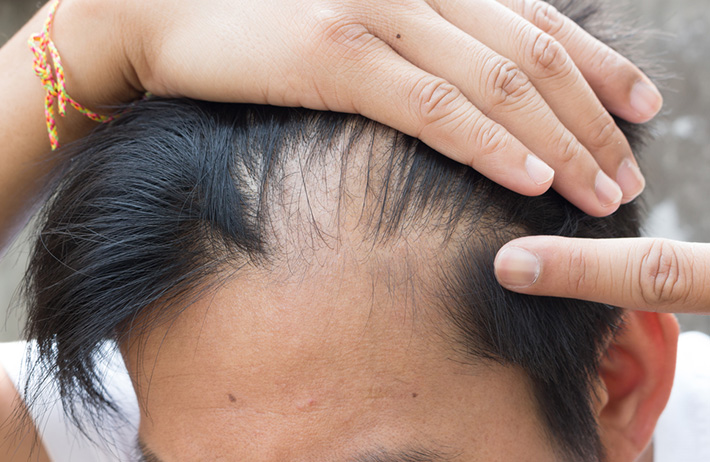Hair on the pillows, comb, or anywhere for that matter is like a nightmare coming true. Hairloss spares no one and then starts the constant battle of trying products and failing miserably.
Losing hair increases age ten folds and reduces your confidence for the same number. The hair product market is flushed, with products but very few stand on their claims. The majority of products contain various chemicals, which only worsen the situation. So, if you want to save your precious locks, then the best approach is to find the right vitamins for hair growth that your body and your hair might be missing.

Hair Growth And Vitamins:
Good and healthy hair is a sign of beauty and good health. Just like every part of our body requires nutrients to maintain its structure and strength, hair needs them too. The hair needs several nutrients to maintain its shine strength and density. While, various factors can affect hair growth like hormones, genetics, and age. But deficiency of vitamins for hair growth is the key reason.
Understanding the vitamins:
Five main vitamins and two nutrients are mainly necessary for the healthy growth of hair. These are:
- Vitamin A: Every cell in the human body requires Vitamin A for developing and growing. This vitamin helps the skin in aking an oily matter known as sebum. The sebum is responsible for maintaining scalp moisturization and hair health.
Important Sources rich in vitamin A are kale, potatoes, milk, spinach, carrots, and pumpkins.
- Vitamin B: One of the famously known vitamins for hair growth is vitamin B, called biotin. Biotin finds its use in the treatment of hair loss. The other constituents of vitamin B are responsible for carrying the nutrients and oxygen to the hair follicles on the scalp.
Sources rich in Vitamin B: whole grains, meat, leafy greens, almonds, and seafood.
- Vitamin C: Radical damages can cause ageing of hair and blockage in the growth. Vitamin is the knight in shining armour or, shall we say, the antioxidant that saves you from the stress that arises due to free radicals. This vitamin helps the body create the elementary ingredient of the hair structure that is collagen. It helps in iron absorption thus, making it one of the most necessary vitamins for hair growth.
Sources rich in Vitamin C are peppers, guava, strawberries, and citrus fruits.
- Vitamin D: This vitamin directly links with creating new follicles.
Sources rich in Vitamin D are direct exposure to sun rays, cod liver oil, fatty fish, and fortified foods.
- Vitamin E: It is an antioxidant and plays the same role as vitamin C.
Sources rich in Vitamin E are spinach, seeds, avocados, almonds.
- Zinc: An integral player when it comes to repairing hair tissues.
Sources rich in zinc are wheat, lentils, oysters, spinach, and beef.
- Protein: The hair structure is protein so, this makes it a necessary mineral for intake.

How to Apprehend If you Have Vitamin Deficiency?
Identifying the deficiency of vitamins for hair growth, in the beginning, can help prevent various problems and can help stop the hair fall problem.
- In Vitamin C deficiency, one will notice hair-splitting, poor wound healing, nosebleeds, and bleeding gums.
- Vitamin A deficiency causes dryness of the skin, slow growth, and breakouts.
- Vitamin D deficiency might result in hair thinning and stopped growth of hair.
- Reduced Zinc mineral in the body causes hair breakage and hair loss.
- The deficiency of Iron might lead to thin hair and breaking of it.
- Vitamin B3 (Niacin deficiency) is the cause of hair fall problems like alopecia. In this, the hair loss forms a patched pattern.
Tackling Hair Loss and Vitamin Deficiency
In the era of Google, we all try to become our doctors by diagnosing ourselves, but one should always take expert advice for deficiency. A proper test will help the doctor analyze the lack of vitamins and, thus, you can take target vitamin supplements and diet.